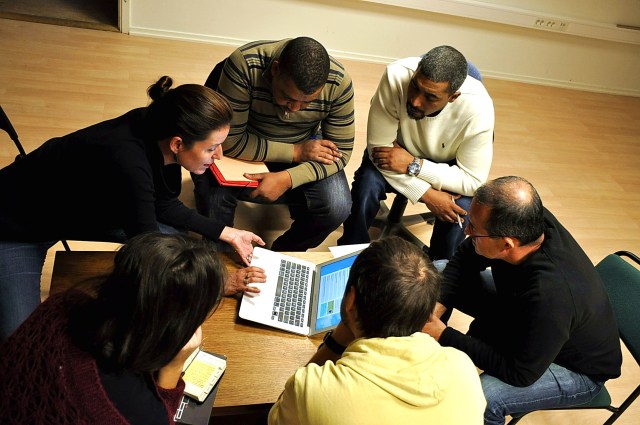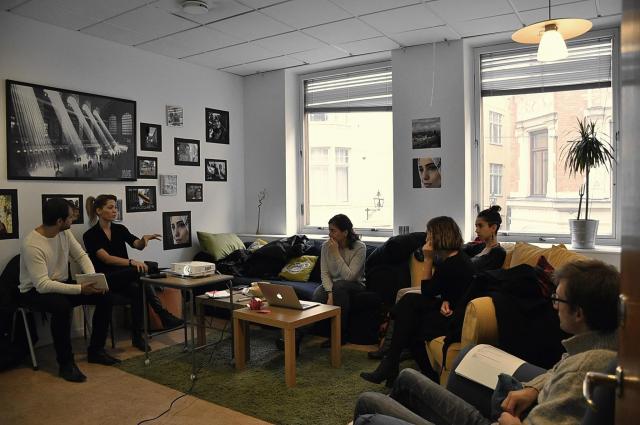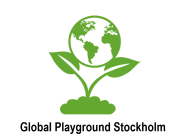“Now is the time for action. Governments, the private sector, regional and international organizations, must start working to implement the 17 ambitious Global Goals.”
So recites the speech of the United Nations Secretary General Ban Ki-moon at the World Future Energy Summit which took place in the United Arab Emirates in January 2016.
To ensure access to affordable, reliable, sustainable and modern energy for all, according to the United Nations, is one of seventeen ambitious goals which stays on the 2030 Agenda of our global society. Ban Ki-moon states that preeminently sustainable energy is a key link which unites such important parts of society’s prosperity chain as social equity, economic growth and a common aim to combat a climate change – a challenge which in the future can lead to a new global problem – environmental refugees. Sustainability is not anymore a trend for Western societies but a goal for all seven continents in order to guarantee an economic growth, food, education, health care and equality for the generations to come. Today China and the United States head the list of top ten countries in the world who consume the biggest amount of energy according to Global Energy Statistical Yearbook 2016. Sweden is on the list among the bottom ten countries.
To diminish consumption, to learn how to recycle smart, to make urban areas citizen- friendly, to reduce CO2 emissions and to change cars for bikes – these first steps will become turning points to make a big change. Environmental activists from two continents – Europe and Africa have joined international forces with a common ambition which starts with small steps: how to save energy in the local community where people spend every day of their life, work, study and meet their family and friends. This is how the international project “Green in Everyday Life” started.

An international initiative, supported by the Erasmus Association and the European Commission, ”Green in Everyday Life” united five countries – Sweden, the UK, Morocco, Italy and Spain in one aim on how to reduce energy’s usage and consumption of natural resources’ in everyday life in chosen focus groups from local communities in the respective countries. Even though each country has different concepts of sustainable development and environmental challenges, the common aim on how to improve the environmental situation and quality of everyday life brought international activists together later on to a final conference. The first international conference within the project recently took place in Spain in June 2016 where each country presented its gained results and best practices upon the project’s end. The conference gave a unique opportunity to discuss what has been learned after almost 1.5 years of active work in local communities. To find right participants for the project who are interested in environment, sustainability and are willing to participate was one of the challenges which project’s implementers faced. In order to reach participants from different social groups, five international NGOs aimed to involve stakeholders on different levels in respective countries.
In the Italian city of Perugia the key participants were chosen with the help of municipalities. The project’s coordinators from Italy chose to work with pupils in primary schools. With the help of previously established cooperation with municipality of Perugia, the NGO from Italy received many requests from directors of different schools who were interested to participate in the project. The schools’ authorities expressed curiosity on the project’s content and framework as it targeted pupils of young age, both immigrants and Italian-born, pupils who have certain disabilities and needs and study in mixed classes. With the help of creative workshops, together with games-and-arts approach the Italian project’s partners shared with children the basic principles of saving different energy sources which surround them in their everyday life – at home and at school. According to the data provided for 2015 by Global Energy Statistical Yearbook 2016, Italy’s total energy consumption consists of 8% among other European countries. Swedish indicator is 3%, the UK’s – 10% and Spanish is 6%. The representative from Italian NGO points out “…when we proposed this project, they (schools’ directors) were happy and curious…They say absolutely “yes”, immediately…Even if we would not have already established contacts with schools, it will be not a problem to attract their interest as our project offers more than the environmental education provided at school does.” The Italian NGO’s representative adds that cooperation with involved schools has strengthened after the project and will be sustained in the future.
The UK’s NGO performed the project in prisons. In order to get access to work with prisoners in the UK the first step was to receive a permission from the prison’s governance. The next step, according to the representative from the UK’s organization, was to distribute information flyers about green advantages in terms of employment, dealing with poverty, knowledge of recycling when the prisoner is released from prison and how prisoners can use the gained knowledge in their professional life after being released. The focus was to deliver eco- skills to the participants, to show them how they can use knowledge if they want to become self-employed after leaving prison and how they can improve their CVs from a professional point of view when looking for a job. Not only prisons but probation centers were involved in the project where two participants expressed their high interest in the project’s topic which has led to their recruitment by probation staff. Moreover, the UK’s NGO initiated a conference which was conducted in July 2016 outside London in Aylesbury with participants from public sector such as prisons governance, employment centers with its pension departments and probation centers. The main idea was to disseminate the learning process and ideas developed during the course of the project with participants from prisons and probation centers. Water meter, to decrease the temperature in the fridge in order to use less energy, to unplug the charger when it is not in use – these simple aspects will be of a big help for prisoners once they are released from prisons and project “Green in Everyday Life” contributed to a large extent to rising this awareness.
“In order to reach pupils from a school located in one of the smallest Moroccan regions, I started to play a game. I was playing a lake and the lake was talking to pupils about how to use the water, how to interact with the environment around We chose this methodology.” – tells one of the Moroccan project’s implementers about her experience. In fact, Morocco is facing today a large rural poverty due to significant shortages of renewable water resources and an effective water reform is needed. Agricultural sector consumes the biggest amount of renewable that is why the Moroccan team focused on schools in the rural regions. Besides pupils and families, representatives from public administration namely youth counselors of the region were invited to participate in “Green in Everyday Life” in Morocco. ”To involve active youth into dynamics of decision making via policies, to show that youth can also negotiate as political actors through different municipalities…” -these challenges were turned by the Moroccan team into project’s goals. The project’s initiative raised by Moroccan team resulted into the development of the strategy to reach the president of the participating municipality with an aim to include the main aspects of the project into the goals for municipality on energy saving and consumption. The argument on energy bills reduction was also a positive factor in the negotiation process with municipalities.
Swedish NGO Global Playground Stockholm implemented project from the Swedish side. Families with small- or middle size households were identified as a target group to work with. At the initial stage of the project’s implementation a number of housing companies in Stockholm were contacted with an aim to cooperate. A number of educational workshops, a “household inspection” for identifying household’s needs in terms of saving energy and water and a distribution of a “tailor- made” saving kit for each household’s individual needs including LED lamps, water saving caps for bathroom or kitchen tap were included in the project’s course in Sweden. There was a low or no response noticed from the six housing companies located in different areas in Stockholm who were contacted. One company expressed its interest in cooperation and provided a list of ten households in the district of Akalla, which according to the company’s statistics had the highest rate in electricity bills and water consumption. However, difficulties were encountered during the period of contacting with the households owners due to limited Swedish and English language skills. While evaluating the challenges after the project’s implementation, Swedish NGO was the one among five participating countries who encountered such challenges as engagement of external stakeholders in cooperation. Housing companies were chosen as most suitable stakeholders for project “Green in Everyday Life” as they have direct contacts with tenants and could therefore become a link between tenants and project’s implementers. All tenants who were contacted abandoned the offer to participate due to low interest and limited language skills which was a crucial obstacle.

The Spanish NGO focused their work on emigrants in the town of Murcia and its region in the south-east of Spain. The topic of integration of immigrants into Spanish society is one of the current importance in Murcia. To share the knowledge about economical consumption, smart recycling and saving households’ energy and resources with newcomers is one of the integration key factors from a long-time perspective. Besides, the Spanish NGO is also a project’s grant holder with a rather renowned reputation within the region. This fact has played a positive role in establishment of cooperation with various stakeholders, in particular with representatives from local municipalities who were willing to cooperate. In terms closely akin to the formalistic, the Spanish NGO has support from local municipalities also due to the project’s innovative character. Moreover, the role of non-governmental organizations in the society in Spain is stronger than, for instance, in Sweden where the state carries many responsibilities which in other countries are simply taken by NGOs. This fact can be also related to the lack of interest shown from stakeholders in Sweden in comparison to those in Italy, Spain, Morocco and the UK who have been contacted by respective project’s implementers.
Conclusion and problematic points of the project
Sweden has a goal of reducing its energy intensity by 20% to 2020. Having this in mind, all stakeholders need to work together to achieve this goal. Housing companies have an important role in order to reach this goal through renovation of old buildings, investment in renewable energy sources and taking small actions such as spreading information and offering education to tenants about their energy consumption and how and why they should decrease it. “Green in Everyday Life” was such a project focusing on changing the patterns in people’s everyday life. The project’s goal was to reduce the target group’s energy and water consumption by 10 percent and change participants’ behavior towards sustainable lifestyle by for example promoting the usage of bikes or public transportation instead of cars, eating locally produced food, using less packaged food, etc. All participants were educated in these matters since these actions are beneficial for the housing companies. Reduction of energy- and water consumption results in economic savings which should motivate the housing companies to participate in similar projects.
The main difficulty we have met during the project’s implementation was the lack of support and interest from the housing companies. Out of six companies there was only one showed interest to cooperate by providing us a list of 10 households with indicators of the highest energy and water consumption. Upon contacting these households by phone, we didn’t succeed in gaining their interest to participate in the project due to language barriers. Our aim was not understood by tenants when we gave them phone calls. The housing companies were requested to provide us with a list of mixed households with both Swedish and foreign tenants in order to reach more households but our request was disregarded. One of our suggestions to the housing companies was to invite all tenants living in one area to an information meeting about GIEL project and those interested could participate. But this suggestion was declined. We tried to work together with the housing companies to make this project successful, where both sides could gain from it. On one hand, the housing companies would reduce their water and energy bills for those tenants that participated. On the other hand, we would offer them free educational tools and saving kits. Due to lack of interest to cooperate we decided to conduct this project by ourselves.
The problems we faced with the housing companies make us really wonder over the lack of cooperation that exists weden. All of the companies we have contacted stated that they have an environmental profile working with energy savings. But when it comes to taking real actions, none of these companies showed any interest. Comparing the Swedish stakeholders to those from Italy, Spain, the UK and Morocco we notice a big difference in the involvement of different actors in the project. It shows that Swedish stakeholders are not interested in cooperation and prefer to do the training by themselves presumably due to lack of trust for NGOs but possibly also due to different cultural and historical backgrounds in respected countries.
Our main goal was to involve ten households, mainly families but we ended up working with young individuals whose households consisted of one or two people. The participants contacted us and showed their interest in participation. Almost all participants were Global Playground Stockholm’s members that had seen the information about the project in social media and were interested to participate. We had ten participants at the initial stage of the project but later on the number decreased to six. The participants that left the project did so due to lack of time which in fact is the main reason for many people we contacted who declined to participate. It also shows how low the interest in Sweden is to participate in these initiatives which were provided free of charge. Comparing the participation in Sweden to other partner countries, we can clearly see that many Swedish citizens have low or no interest to participate in such activities.
We tried to promote this project in social media websites, Facebook, Twitter, Instagram, local newspapers, our website, and other NGOs website but nevertheless a low interest was expressed. We knew from the beginning that to gather participants from ten households might turn into a challenge but it should not be a possible task. It is easier to choose other target groups such as schools or offices but our main idea was to target individuals in their homes and study their behavior to change their lifestyle to a sustainable one. What we can see is that all participants of the project were young, educated people with environmental interest. This was of course not our main goal since this group already knew much but still gained new knowledge and experience.
In order to reach a sustainable future, all stakeholders need to take actions. All actions matter even the smallest ones. This experience showed us the lack of cooperation between different stakeholders in Sweden. Thus the question still remains: how will we reach a sustainable future if we do not cooperate to achieve it together? As this fact is crucial we strongly recommend stakeholder such as housing companies to seize such opportunities as GIEL project to achieve actual results. It is important to work across boundaries in order not only to develop but also to create a change in the society. All cross sectoral cooperation is important; especially with non-governmental NGOs that strives to change society for better through inclusion of different social groups. What NGOs experience today is a lack of trust, interest and cooperation with different stakeholders and politicians. There is no space for NGOs to create a change if it is not supported by the civil society and state institutions. Therefore it is of a big importance to give the NGOs the support needed.
Stiva Liwiz and Iryna Mikhnovets







